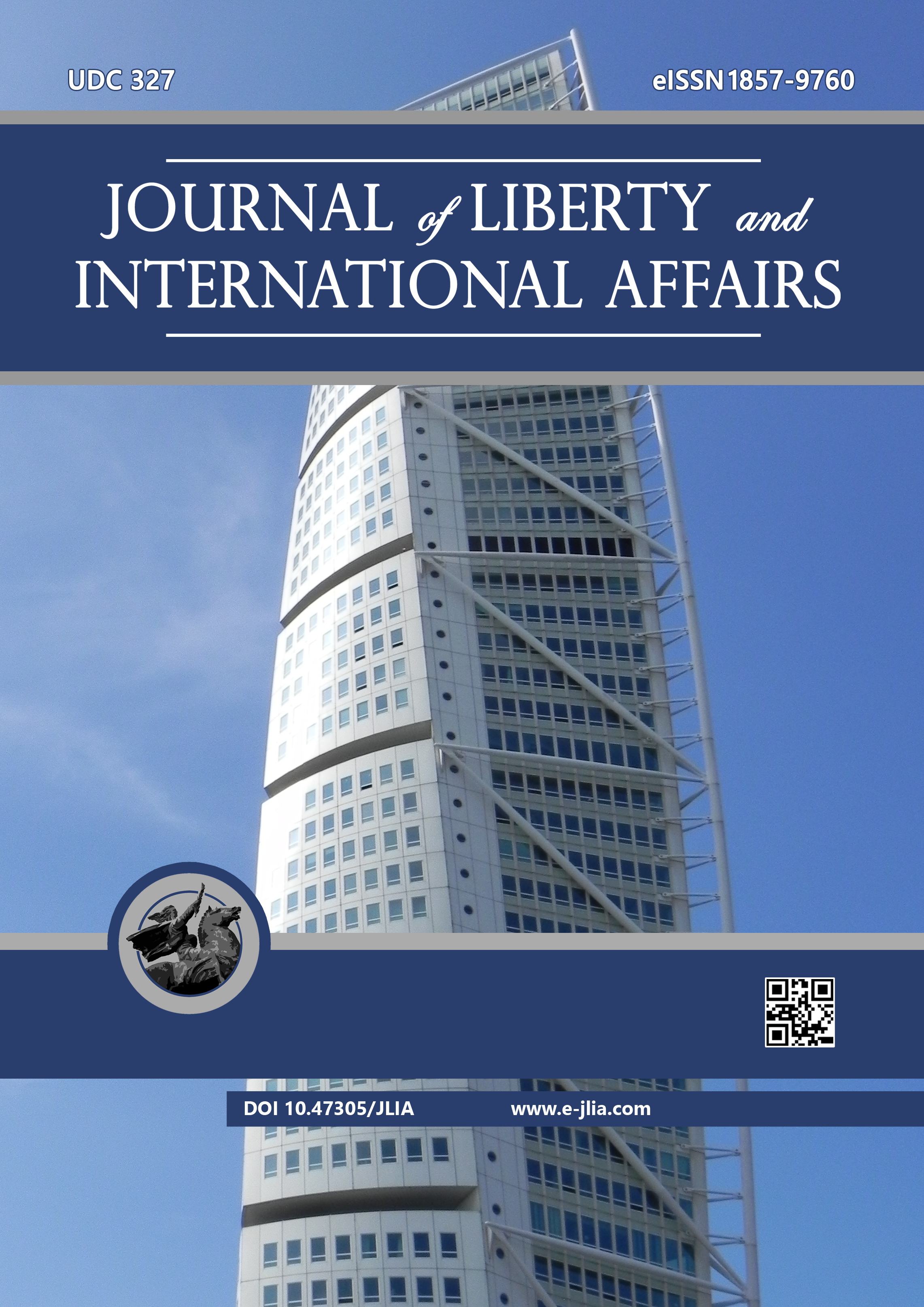SCOPE AND LIMITATIONS OF SOFT POWER DIPLOMACY: A QUANTITATIVE ANALYSIS OF AFGHANS’ PERCEPTIONS ABOUT INDIA
SCOPE AND LIMITATIONS OF SOFT POWER DIPLOMACY: A QUANTITATIVE ANALYSIS OF AFGHANS’ PERCEPTIONS ABOUT INDIA
Author(s): Mohammad Reyaz, Sabir AhamedSubject(s): Politics / Political Sciences, Politics, Social Sciences, Psychology, Political Theory, Political Sciences, Civil Society, Governance, Public Law, Sociology, Government/Political systems, International relations/trade, Security and defense, Welfare systems, Political behavior, Political psychology, Politics and law, Politics and communication, Politics and society, History and theory of political science, Methodology and research technology, Comparative politics, Cultural Anthropology / Ethnology, Culture and social structure , Behaviorism, Social Informatics, Sociology of Culture, Welfare services, Inter-Ethnic Relations, Sociology of Politics, Geopolitics, Politics of History/Memory, Politics and Identity
Published by: Institute for Research and European Studies - Bitola
Keywords: Afghanistan; Indo-Afghan relations; Soft Power; Diplomacy; Public Diplomacy
Summary/Abstract: Before the Taliban came back to power in Afghanistan in August 2021, India and Afghanistan had cordial bilateral relations and were often described as great friends. Since 2002, India had helped build several infrastructure projects as part of its promised development assistance program of over $2 billion (later increased to $3 billion). Considering India’s investments in Afghanistan, the goodwill it enjoyed among common Afghans was understandable. However, it would be wrong to imply that these unique, multifaceted bilateral relations between the two countries were simply due to India's helping hand. This research paper is one of its kind attempt to explain the perceptions Afghans had about India based on the field survey done in Afghanistan in 2019. Using responses of over 321 Afghan participants, the paper attempts to quantitatively analyze the goodwill and positive vibes that India enticed among Afghans. However, many Afghans felt that India did not do enough during the crisis in August 2021. Based on the survey and the general perceptions of Afghans in the aftermath of the return of the Taliban, this paper argues that the soft power investments in Afghanistan helped India in its nation-branding, making it attractive and creating goodwill. However, New Delhi lacked the will to act smartly and hence did not get the desired strategic influences due to ‘soft power behavior’
Journal: Journal of Liberty and International Affairs
- Issue Year: 8/2022
- Issue No: 2
- Page Range: 150-176
- Page Count: 27
- Language: English

